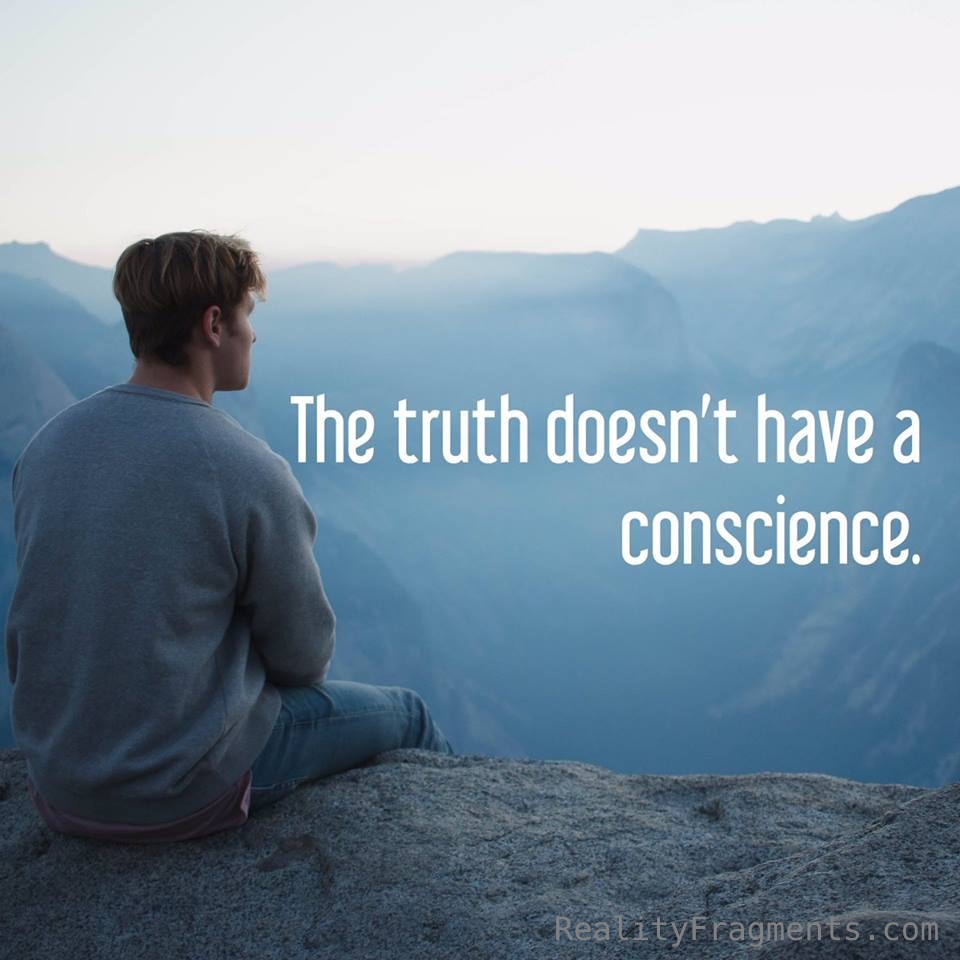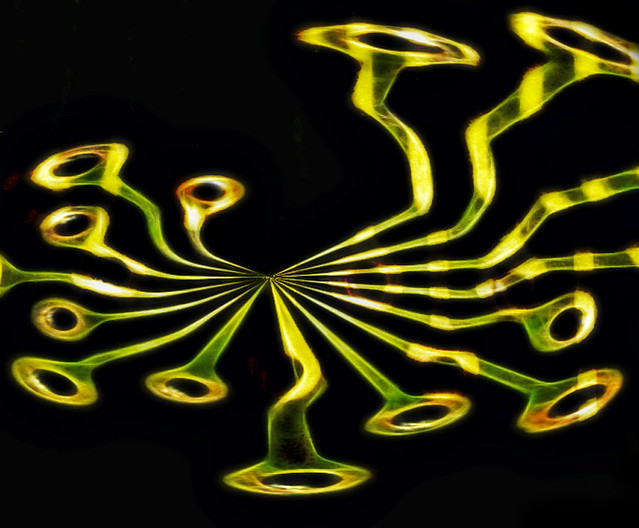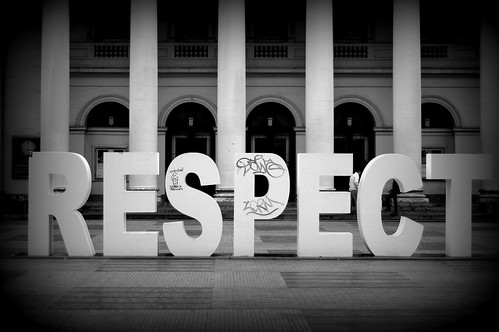 The history of ‘race’ is one of illusion, based on tribalism and nationalism – both of which have had a sometimes useful purpose in mankind’s development. It boils down to someone being ‘one of us’ or ‘not one of us’.
The history of ‘race’ is one of illusion, based on tribalism and nationalism – both of which have had a sometimes useful purpose in mankind’s development. It boils down to someone being ‘one of us’ or ‘not one of us’.
The Greeks, those that gave us the concept of democracy, called everyone who wasn’t Greek a barbarian:
The term [barbarian] originates from the Greek: βάρβαρος (barbaros pl. βάρβαροι barbaroi). In ancient times, the Greeks used it mostly for people of different cultures, but there are examples where one Greek city or state would use the word to attack another…
…The Greeks used the term barbarian for all non-Greek-speaking peoples, including the Egyptians, Persians, Medes and Phoenicians, emphasizing their otherness, because the language they spoke sounded to Greeks like gibberish represented by the sounds “bar bar bar;” this is how they came to the word βάρβαρος, which is an echomimetic or onomatopoeic word. However, in various occasions, the term was also used by Greeks, especially the Athenians, to deride other Greek tribes and states (such as Epirotes, Eleans, Macedonians, Boeotians and Aeolic-speakers) but also fellow Athenians, in a pejorative and politically motivated manner…
Sound familiar? We see it every day, really. What we do not understand we dismiss as alien, invasive and ultimately something that needs to be dealt with because of fear or resentment. It is not hard to imagine how this has served in repelling foreign invaders. It is also not hard to imagine how this has been used to dehumanize others as either a reason to conquer. “They’re only barbarians.” Modern media, which sells advertising to stay alive (except the BBC, I think – funded by the Queen), promotes things that people want to see. It’s a reflection of society. Nowadays, we get to pick our channels – which makes it more complex.
Social media creates echo chambers for the same reason, where everyone you know agrees with you either by algorithm or active choice. Some talk about ‘Fake News’. Fake news wouldn’t be around if it wasn’t what people wanted – it fits their viewpoint. Contrary to what people believe, we’re all subject to that – no matter how hard we try.
We invent our own bogeymen because we refuse to see them as the same as us. Now, people will quickly draw a parallel with however they see the world.
A person who appears Middle Eastern will think immediately of how they are seen as Muslim or terrorists, a hispanic will immediately think of the hispanic perspective. Being brown in the developed nations of the West comes at a cost with little or no redeeming value.
Being of African descent, identifying as black, is pretty much the same in this regard because of slavery. When slavery was abolished, the poor European descendants (white) and the former slaves were pretty much on equal footing, just as the Indentured Laborers from India were in parts of the Caribbean and South America with the former slaves. I imagine that there are other examples, but these are the ones I know.
This was a problem for the people in charge, so they stoked the flames. How do you do that? Make them fight among themselves; reinforce the natural tribalism and the tendency to treat people unlike as outsiders who are not to be trusted. Pakistan may be an example of this when you look at the Colonial period, since it was created as a two state solution for violence in India under British rule.
Some people might have been a bit uncomfortable with slavery, so those that were in power went to scientists or had scientists come to them to create pseudoscience which demonstrated ‘others’ were less than themselves. Intentionality? Most certainly. Whose? Well, it’s hard to say, but it would likely have to be both the scientists and those in power. Get the right people behind it, and suddenly, anyone who is not like ‘us’ is less than ‘us’ because ‘science’ says so.
People who know this have a tendency to attribute intentionality to all of this. It most certainly has happened. There is no denying that. The way it is portrayed by some leans on either the Left, where the history is portrayed as one of intentionality, or one from the Right, where those ruled were problematic in creating the troubles. The problem with this is that they are likely both right.
Some of this could be as simple as an uncomfortably sweaty Governor hearing about the troubles and seeing how the troubles would help rather than hinder those they represented. “Well then”, he might say, “It is not in our interests to intervene.” That’s not intentionality, that’s allowing society to take it’s course. Argue if you must (and some of you must), but that stands. If you look closely, you’ll see it every day around you when people see things and do not intervene. We could delve into the psychology of it, but then we’d be stuck arguing at a different level. What we can say, whether we like it or not, is that it’s demonstrably human nature. Sometimes.
Some of this that we see, after seeing how well not intervening worked, might be a sweaty Governor hearing about troubles and saying, “Let’s help push this along, shall we? It’s not going fast enough”. There we have intentionality. There is no question there, there is a simple use of making the situation worse to make the problem work toward someone else’s interests.
A combination of both ignoring situations as well as intentionality is likely the truth of it all.
All the while, those enforcing control over these factions retained power because no one had the time, energy or will to even question those in control except a select few. The successful of these few we know about – Gandhi, Martin Luther King Jr., Nelson Mandela, etc. We can be certain that the numbers of the unsuccessful dwarf them; we can study each leader and come to some conclusions, but in the end it’s a matter of serendipity and ability. The right people, the right time. These people only seem to succeed when society is willing to let them, and when society is only willing to let them when there is a common problem that society recognizes and wishes to solve.
Otherwise, it’s business as usual.
 The truth of it all is that there are no races. Bureaucracies still count people based on this archaic illusion and perpetuate the illusion. I have mentioned that when I purchased a weapon in Wisconsin, I noted that on the form I was asked about race – as if someone in the U.S. Government wanted to have the number of armed Samoans at their fingertips.
The truth of it all is that there are no races. Bureaucracies still count people based on this archaic illusion and perpetuate the illusion. I have mentioned that when I purchased a weapon in Wisconsin, I noted that on the form I was asked about race – as if someone in the U.S. Government wanted to have the number of armed Samoans at their fingertips.
Policies that are based on race – this illusion, this bad parody of science – also perpetuate the illusion.
Stop the illusion.
Or, by all means continue it and wonder why progress doesn’t happen.
If you are colored by the past – pun intended – how can you not be colored by it in the future? The future is what we take with us.
 The world twists us, with all the cultural inertia we inherit, with all the cultural inertia those within our spheres inherit, torturing our realities into what is sometimes hard to recognize. Social networks magnify this beyond our geographical familiarity, connecting us with those we would not otherwise interact with – an improbable thought for those who have grown up with this interconnected world, a sometimes nostalgic thought for those who existed before the Internet came into being. Algorithms control what we see, shoving us into the echo chambers of our choosing, dooming us to a perception of agreement.
The world twists us, with all the cultural inertia we inherit, with all the cultural inertia those within our spheres inherit, torturing our realities into what is sometimes hard to recognize. Social networks magnify this beyond our geographical familiarity, connecting us with those we would not otherwise interact with – an improbable thought for those who have grown up with this interconnected world, a sometimes nostalgic thought for those who existed before the Internet came into being. Algorithms control what we see, shoving us into the echo chambers of our choosing, dooming us to a perception of agreement.
 The
The 